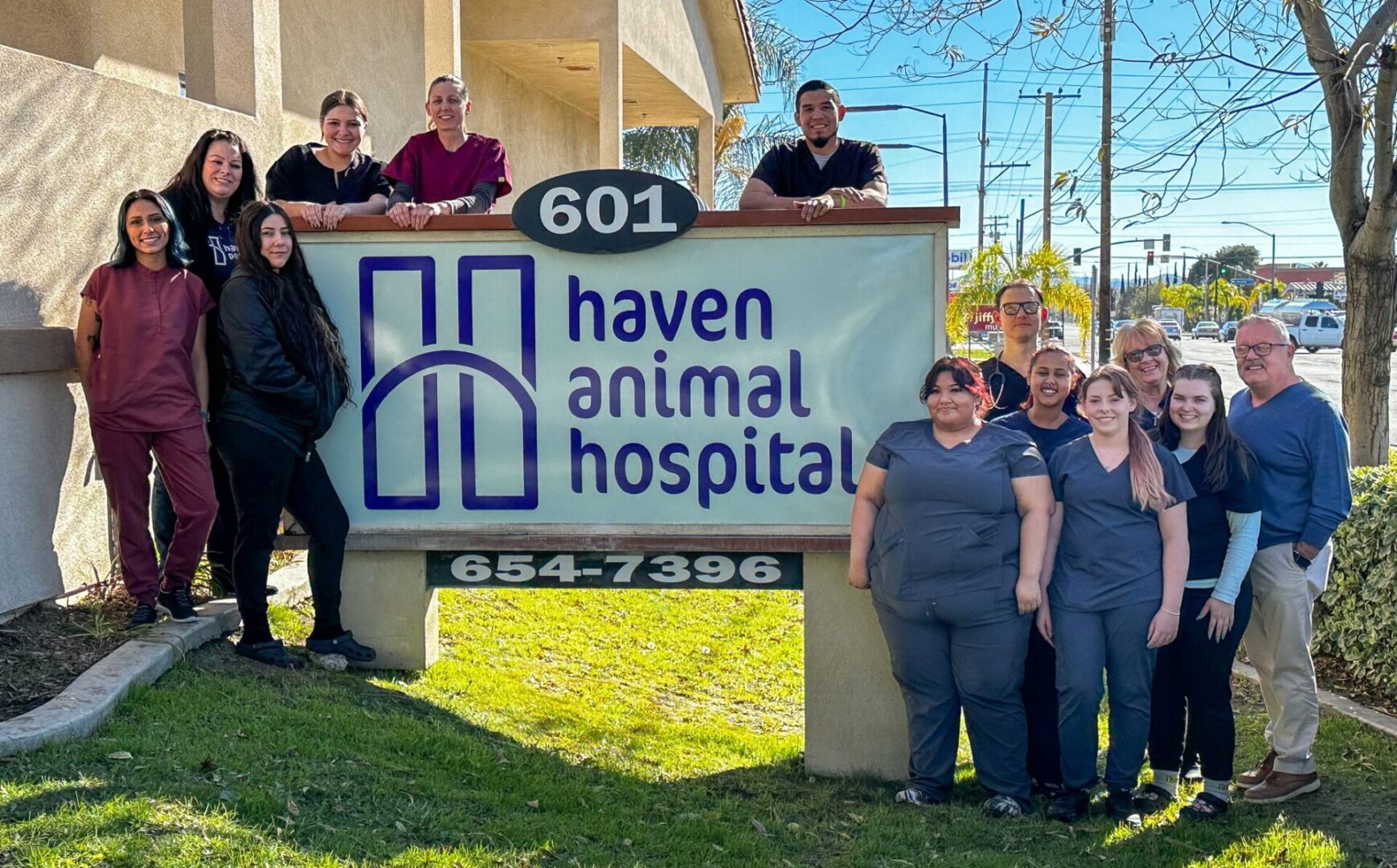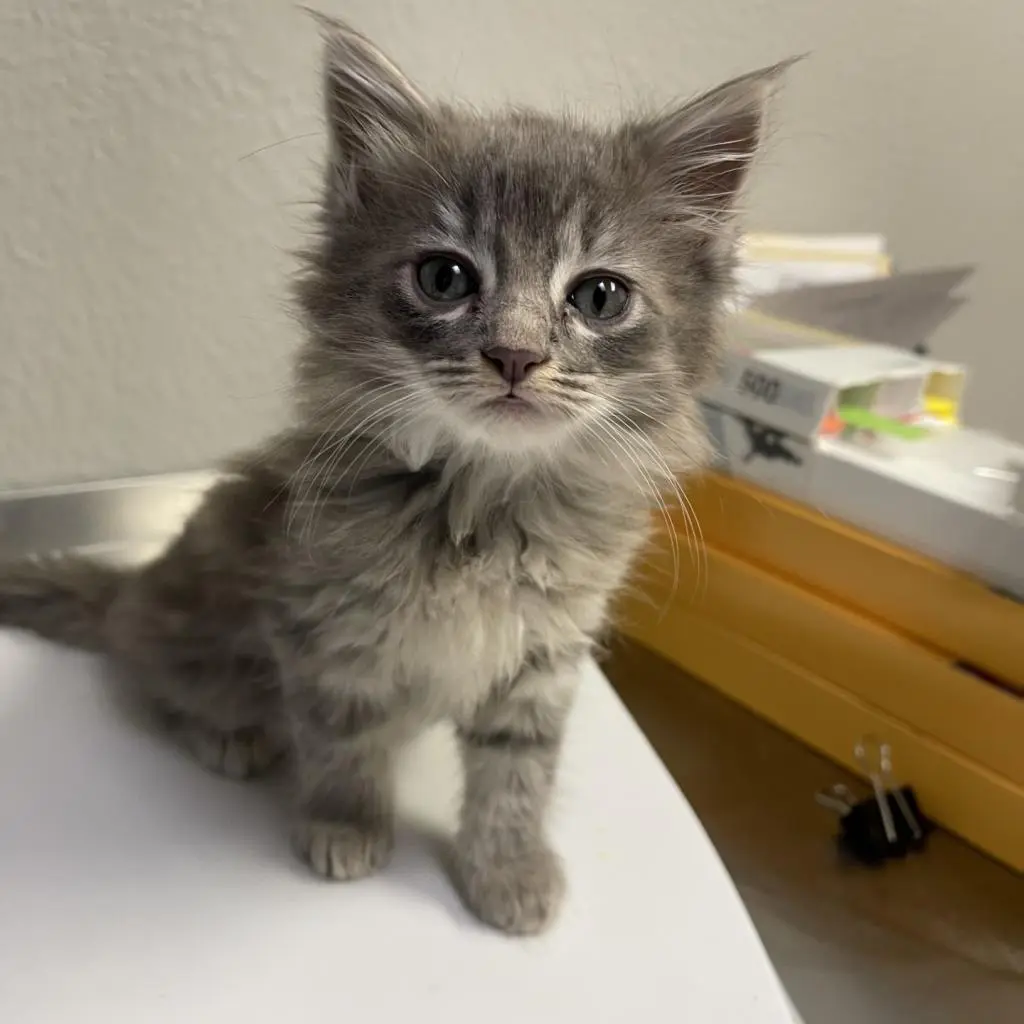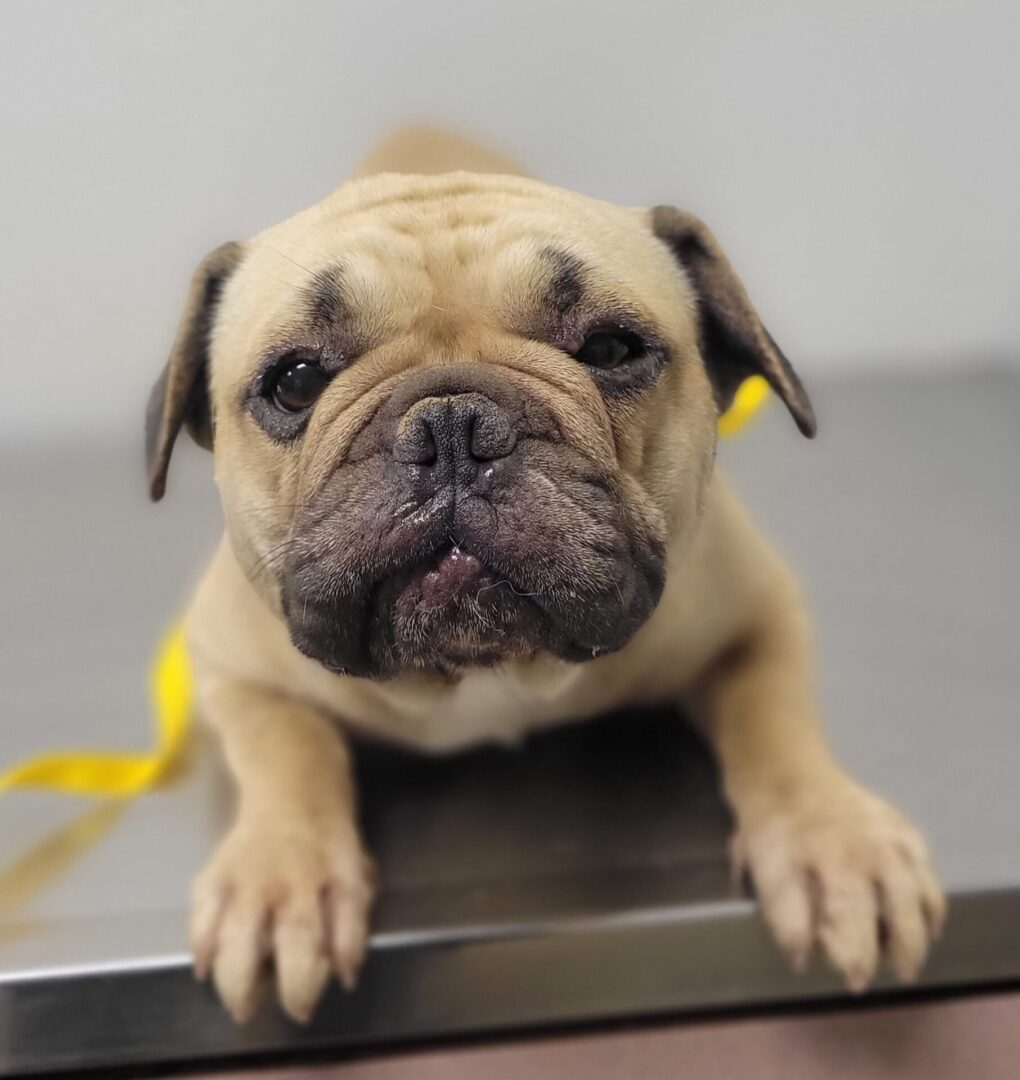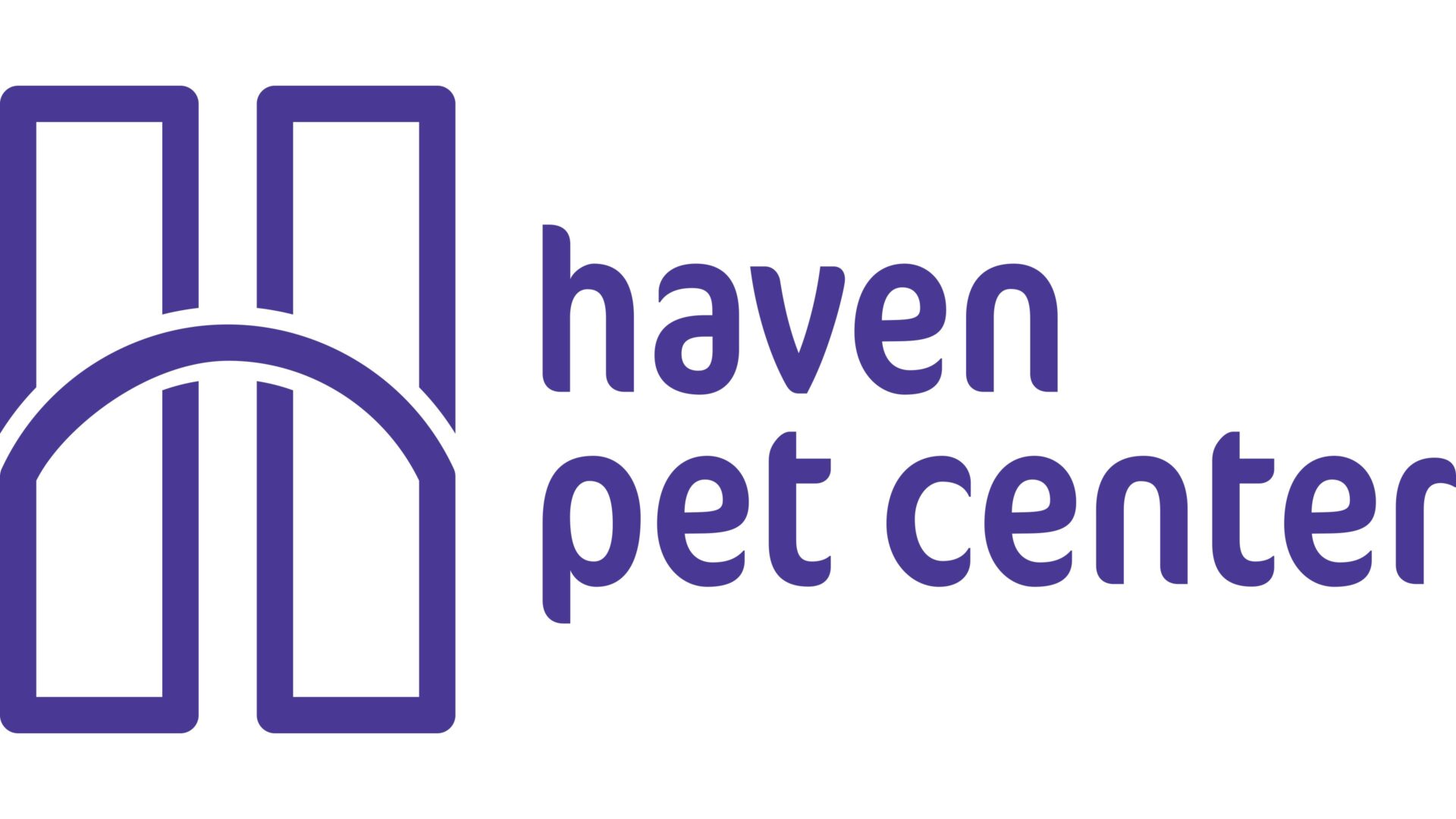
About Our Hospital
We are a full-service animal hospital in San Jacinto, CA. We offer effective medical aid for dental and surgical issues. From animal care to non-emergency veterinary care, boarding, and grooming, we provide comprehensive services.
Animal Care Is Our Top Priority
The heart of our operation centers around our dedicated focus on animal care. We ensure every pet under our watch is provided with nourishing food, a clean shelter, and regular medical check-ups and vaccinations. Additionally, our adoption initiative gives every animal a loving home and saves them from potential euthanasia in shelters.


WELLNESS - Preventive Care for Your Pet
Your pet’s health changes with age, just as yours does. But our pets age much faster than we do. Regardless of your pet’s age, you play a key role in helping him combat illness and remain as healthy as possible.
Remember, your pet cannot describe symptoms to you, but he will show you signs of disease or illness. Awareness of the signs of the most common diseases is one way to help reduce your pet’s risk. It’s a little scary to consider that 10% of pets that appear healthy to their owners during their regular checkups have underlying diseases.
We recommend an examination of all twelve of the body systems. We recommend a physical examination once a year on all normal pets. Because pets age more rapidly than humans, having a physical examination every year is important to discover any health problems. Pets are unable to communicate how they feel with words, so they are on a faster path toward illness than humans. Many pets mask their illness from us, so only an experienced veterinarian can perform a proper exam to determine the state of wellness. Pets with chronic illness may need to be seen more frequently than once yearly.
The picture of your pet’s health isn’t complete without comprehensive testing. These tests often detect illnesses that can’t be discovered with a physical examination alone.
Your pet’s blood values may change over time. These changes are often subtle, so test results may appear to be “normal.”
Every animal is unique, so it’s important to know what a normal result is for your pet. By establishing your pet’s baseline values during health, we have something to compare his or her results to on a yearly basis.
Trending these results helps us diagnose problems earlier and respond quickly. Early detection leads to better outcomes, improved quality of life and lower treatment costs, should they arise.
Vaccines help prevent many illnesses that affect pets. Vaccinating your pet is one of the easiest ways to help them live a long, healthy life. Not only are there different vaccines for different diseases, but there are also different types and combinations of vaccines.
DA2PPv - Prevents disease caused by canine distemper virus, adenovirus type 1 (hepatitis), adenovirus type 2 (respiratory disease), canine parainfluenza virus, and canine parvovirus. Puppies receive a series and adult dogs are vaccinated yearly.
Bordetella - Prevents canine infectious tracheobronchitis (“canine cough”) due to canine parainfluenza and B. Bronchiseptica. Puppies and dogs are vaccinated yearly.
Flu Bivalent - Protects against H3N2 & H3N8 canine influenza. Initial vaccine is repeated in 3 weeks then yearly. Needed for social dogs that are boarded, groomed, visit dog parks or classes.
Rabies - Required by California law on all puppies and dogs over 3 months.
HCP - Protects against feline rhinotracheitis, calicivirus, panleukopenia. Kittens receive a series and adult cats are vaccinated yearly.
FeLV - Protects against feline leukemia virus. Initial vaccine is repeated in 3 weeks then every 2 years. Needed for outdoor or at-
risk cats. Testing for FeLV and FIV should be performed before vaccinating and repeated yearly on outdoor cats.
Rabies - Recommended for all cats over 16 weeks.
Fleas and ticks are known as ectoparasites, or parasites that live on the outside of the host animal. Both fleas and ticks survive by taking a blood meal, which means they must bite their host to draw blood for food. While the bite itself is small, flea saliva can cause severe allergies, dermatitis, anemia, itching, and infection. Tick bites can also cause infection, abscesses, paralysis, and even death. In addition to allergic reactions, fleas and ticks can also transmit a variety of diseases to cats. Cats aren’t as susceptible to tick-borne diseases as dogs, but there is still a risk of illness. In some cases, ticks can also transmit diseases to cats that can then infect humans (e.g., zoonotic diseases). The best way to prevent flea and tick allergies, or to reduce the risk of spreading diseases, is to prevent infestation in the first place. Fortunately, there are a variety of products to help keep your pet free of parasites.
Neutering is the term used to denote removing the ability of a pet to reproduce. Neutering is the correct term for either males or females but is more commonly used to denote the surgical removal of the sexual organs in a male pet. A spay is the surgical removal of the sexual organs in a female pet. We recommend neutering for all pets not explicitly used for breeding purposes. Neutered pets have fewer diseases, roam less, fight less, have cancer less and live longer.
Heartworms are spread by mosquitoes, so any area of the country that has mosquitoes, even just a few of them, can also have heartworm disease. Pets don’t just need prevention during warm-weather months. Heartworm preventives work by treating heartworms that already infected the pet within the past month or longer; meanwhile, preventives need to be given on time, every time to be effective.
Heartworm preventives come in different forms, including monthly chewable pills and topical medications. Some preventives only prevent heartworms, and some protect pets from many different parasites, including heartworms, intestinal worms, fleas, ticks, and mites.
Routine dental cleanings are an important part of general health care maintenance for your pet. The teeth are a potential source for life-threatening infections to the heart, liver, and kidney, if periodontal disease develops. Pet's teeth are very similar to human's teeth and dental disease is very common in pets. Routine dental care is recommended because maintaining good oral health will greatly improve the health and breath of your pet. Teeth cleaning procedures completed at our hospital, followed by our recommended home care treatments, are the best way to ensure the long life of your pet's teeth.
We recommend a Wellness Blood Screen every 6 months for your pet. This test will help us assess internal organ functions, which cannot be determined based on physical examination alone. Indications of internal organ functions, such as the liver and kidney functions as well as the presence of infection or anemia can be determined.
We recommend strategic deworming for your pet every 6 months. Strategic deworming assumes that your pet has, or has been exposed to, parasites and that these parasites are a threat to your pet, your family, and the environment. Strategic worming is recommended by the Centers for Disease Control to prevent transmission of parasites from pets to people. We will need to repeat this treatment in 2 weeks to be effective. For more information on strategic deworming please visit the Centers for Disease Control Website. All puppies and dogs should be dewormed regularly after 4 weeks of age. We recommend deworming every 6 months unless your pet is on a monthly preventative.
Pyrantel pamoate - Treats hookworms and roundworms in dogs and cats. Deworming is repeated in 3 weeks. Many parasites are zoonotic, meaning they can be transmitted to humans. Dogs and cats should be examined and fecal tested at least once yearly.
The biochemical properties of the urine are tested by a urinalysis and can help to determine the cause of a urinary tract disorder. The presence of blood or white blood cells in the urine indicates inflammation, while a change in the acid content of the urine may indicate infection. Microscopic evidence of crystals may indicate that bladder or kidney stones are present and microscopic evidence of casts (from the kidney) can be an early warning of kidney disease. The concentration of the urine can reflect kidney function and the presence of dehydration. The presence of glucose is suggestive of diabetes. Other biochemical tests can be completed and if infection is suspected, a culture of the urine will be recommended.
We recommend Wellness Intestinal Parasite Testing every 6 months for your pet. Intestinal parasites can be identified by microscopic examination of your pet's stool for the presence of worms or worm eggs. We recommend these tests to identify parasites that may be either a threat to your pet or to your family.
Lyme disease, ehrlichiosis, and anaplasmosis are known as tick-borne diseases because they are transmitted when ticks bite and feed. Because ticks can carry more than one of these diseases, and dogs can be bitten by multiple ticks, infection with Lyme disease, ehrlichiosis, and anaplasmosis can occur at the same time in the same dog.
The ECG, or Electrocardiogram, monitors the electrical activity of the heart. It can help determine the reason for irregular heartbeats and abnormal heart sounds and determine heart dysfunction in pets that have no external signs of heart disease.
Feline Leukemia Virus (FeLV) and Feline Immunodeficiency Virus (FIV) are contagious, viral diseases that can damage the immune systems and cause cancers in cats. Even perfectly normal looking cats can silently carry these diseases. Both FeLV and FIV can be transmitted through bite wounds. In the case of FIV, saliva from an infected cat is the primary mode of transmission. The FeLV virus is shed through saliva, nasal secretions, urine, feces, and milk; it may be transmitted through mutual grooming, from mother to kitten, bite wounds, or rarely, through shared litterboxes and feeding dishes.
Elevated blood pressure is a very serious complication of heart and kidney disease. Blood pressure measurement is easy, high technology equipment, and can be completed with no discomfort to your pet. Heart disease, kidney disease, anesthesia, position of your pet, fluid administration and fluid losses can all affect your pet's blood pressure. Blood pressure monitors can also be used to monitor your pet's blood pressure while your pet is under anesthesia.
A HomeAgain microchip is your pet's permanent ID. A pet microchip—the size of a grain of rice—goes beneath your pet's skin. This permanent ID can never be removed or become impossible to read. HomeAgain uses this ID to contact you and reunite you with your pet.
Pets have become members of our family, and because we interact with them every day by touching and petting them, their hair coat needs to be clean and enjoyable. This increased level of interaction necessitates frequent hair and skin cleaning. Because a pet’s skin and hair coat have differences in pH, skin layers, hair type and hair numbers, special considerations must be given to grooming. The following care instructions represent traditional hair coat care for your pet's coat type. We recommend professional hair coat care by a pet groomer, supplemented by your home care on a routine basis. You may increase the frequency as needed to make your pet a huggable part of your family.
A Schirmer tear test (STT) is a diagnostic test to measure the rate of tear production in an animal’s eyes. Used in the evaluation of conjunctivitis to diagnose tear deficiency as a contributing factor to ocular surface diseases and to assess lacrimal gland function.
Behavioral concerns are very common with pets and may be the most common reason for pet abandonment and pet euthanasia. This is sad because most pet behavioral problems can be diagnosed and treated when the proper care and knowledge are applied to your pet's issues.
After arriving at home, you should keep your pet warm and comfortable by providing a soft, clean bed, ideally in a quiet and draft-free room at a comfortable room temperature (68-75°F). Your pet should remain indoors overnight, going outside only for short leash walks (for dogs) as needed to urinate and defecate. For most procedures, your pet's activity should be restricted for one full week after surgery. It is essential to avoid running, jumping, and other strenuous activities that could cause excessive strain on the wound.
A few hours after arriving home, you may offer your pet approximately half of his normal dinner. If he eats this and still seems hungry, you may offer the rest of his meal approximately one hour later. Some pets experience nausea after general anesthesia, so dividing the meal into smaller portions may decrease the risk of nausea and vomiting. Unless otherwise instructed, your pet's access to water should not be restricted.
It is essential to avoid running, jumping, and other strenuous activities that could cause excessive strain on the wound.
Your pet was given a general anesthetic or a sedative. These drugs can take several hours to wear off and may cause some patients to appear drowsy for a day or so. Over the next 24-48 hours, your pet's behavior should gradually return to normal. However, if you are at all concerned, do not hesitate to contact the hospital.
If your pet has a shaved area on one of his front legs, this is typically where the anesthetic or sedative was administered. Additionally, many pets receive intravenous (IV) fluids through an IV catheter during surgery and the hair must be removed to allow the area to be disinfected properly before inserting the catheter. Sometimes this area will be bandaged; if so, you can remove the bandage the day after the surgery unless otherwise instructed.
Your pet may have had a tube placed in the trachea (windpipe) during anesthesia, to administer oxygen and anesthetic gas. This can occasionally cause mild irritation and a slight cough. A mild post-surgical cough will typically diminish over the next few days. If coughing persists or worsens, contact the hospital.
Your pet may instinctively try to clean his surgical site by licking. If you have been given an Elizabethan-type protective collar (often referred to as a "cone" or E-collar), please ensure it is used to prevent chewing. If you have not been given an E-collar and your pet begins licking or chewing the incision, please contact the hospital and request one. If your pet does succeed in removing any stitches, please call the hospital as soon as possible. Not surprisingly, many pets find these collars strange at first and will attempt to remove them. However, after a short period most pets will settle down and tolerate wearing the collar. It is better to keep the collar on all the time, rather than to take it on and off. It only takes a few seconds of chewing for a pet to remove his stitches or damage the surgery site. If your pet does succeed in removing any stitches, please call the hospital as soon as possible.
The incision should normally be clean, and the edges should be together. The skin surrounding the incision should be a normal or slightly reddish-pink color. In pale-skinned pets, bruising is often seen around the surgical site. This may not appear until a few days after the operation and in some cases can seem excessive in comparison to the size of the incision. This is due to seepage of blood under the skin edges and is a normal occurrence. In some cases, a small amount of blood may seep intermittently from a fresh incision for up to twenty-four hours, especially if the animal is active.
You should be concerned and should contact the hospital immediately if you see any of the following at the surgical site:
- Continuous or excessive blood draining.
- Intermittent blood seepage that continues for more than twenty-four hours.
- Excessive swelling or redness of the skin.
- Unpleasant smells or discharge.
In general, most skin stitches or sutures are removed 10-14 days after the operation; the actual time depends on the type of surgery performed. You will be instructed when your pet should return for suture removal. In some cases, your veterinarian may use sutures that do not require removal. These sutures are placed under your pet's skin and will dissolve in the coming weeks. If you have any questions regarding your pet's stiches, please contact your veterinarian.
In most cases, your pet's activity will need to be restricted for at least 2 weeks, or until the sutures are removed (if the sutures are to be removed). During this time, it is important to limit your pet's activity to prevent the incision from opening. It is also essential to avoid swimming or bathing during this time, as moisture can help introduce bacteria into the wound and lead to infection.
After surgery, your pet may be sent home with pain medications or other oral medications. If you have been given any medication to give your pet, please READ THE LABEL CAREFULLY and ensure that you administer all medication as instructed. If you are having trouble treating your pet, please contact the hospital for advice.
Dog & Cat Spay & Neuter
Pre-Op Visit
To prepare for surgery, all pets start with a complete examination. We will verify all vaccinations are current, any overdue vaccines must be updated prior to scheduling surgery. To ensure the safety of all pets in our care, we require all vaccines be performed by a veterinarian. Cats must be current on rabies and HCP vaccines. Dogs must be current on rabies, DAPP, and Bordetella vaccines.
An ECG heart function test is performed to determine the type of medications that can be used for surgery.
Preventive care lab profile is recommended for pets of all ages to confirm internal organ function is normal prior to undergoing surgery. Lab work is required on pets with health concerns and pets 2 years and older. Please bring a fresh stool sample collected within 4 hours of the visit or refrigerate no longer than 12 hours prior to visit.
Additional testing or treatment may be needed based on your pet’s examination findings.
During your pre-op visit we will collect prepayment for surgery. This will ensure you can be scheduled in a timely manner once the test results are in.
Surgical Visit
Fasting is required for anesthesia. We ask that you do not allow access to food or water after 8pm the night before surgery.
You will drop your pet off in the morning on the day of surgery. We will keep in touch with you throughout the day with status updates on your pet.
An additional pre-operative examination is performed on surgery day to confirm there have been no changes to your pet’s health.
We will place an intravenous catheter* to administer injections. Your pet will receive medications for pain management, to control nausea/vomiting, antibiotics to prevent infection, local anesthesia at incision site as well as general anesthesia. We maintain your pet on inhalation gas anesthesia during the procedure. We monitor heart rate and blood oxygen levels while your pet is anesthetized.
*Male cats will not receive IV catheter
We utilize laser therapy to stimulate the cells and tissue, reduce inflammation and minimize pain after surgery. Laser therapy is highly recommended but not required.
Many pets receive internal dissolving sutures, although some require external sutures or staples that will need to be removed in 2 weeks. All pets are sent home with an E-collar to prevent licking and chewing at the incision site. The E-collar will remain in place until the recheck in 2 weeks, or longer if not completely healed at that time.
We often send home sedatives after a spay or neuter to facilitate restricted activity. There will be a charge for this prescription.
Fees
Examination $58
Vaccines For Dogs
- DA2PPv $39
- Bordetella $26
- Rabies $18
Vaccines For Cats
- HCP $24
- Rabies $18
Preventive Care Lab Profile $190 +/- Urine Collection by Ultrasound $14
Laser Therapy $42
Sedatives $24+
Male Cat Neuter $147
Female Cat Spay $322
Male Dog under 70 lbs $495
Male Dog Over 70 lbs $554
Female Dog under 70 lbs $611
Female Dog over 70 lbs $669

GROOMING SERVICES
Indulge your furry friend in a premium grooming experience at Haven Animal Hospital. Our expert groomers are dedicated to elevating your dog's well-being through personalized services designed for all breeds and sizes.
Tailor your pup's grooming session with deluxe add-ons, ranging from conditioning treatments to chic pawdicures. Discover luxury and attentive care at Bubble & Bows, where pets exit not only looking but also feeling their absolute best. Treat your cherished companions to the royal pampering they truly deserve!
SERVICES:
Full Groom- Includes bath, brush out, haircut, nail trim, and ear cleaning.
Tidy Up- Includes bath, brush out, feet-face-sanitary trim, nail trim, and ear cleaning.
Bath-
Long Hair- Includes bath, brush out, nail trim, and ear clean.
Short Hair- Includes bath, brush out, nail trim, and ear clean.
ADDITIONAL SERVICES OFFERED:
-Teeth Brushing
-Nail Grinding
-Facials
-Anal Gland Expression
-Shed Less
-Upgrade Shampoo
-Conditioner
POTENTIAL SERVICES OFFERED:
-Impacted Coat-Mild
-Impacted Coat-Severe
-Matted Coat-Mild
-Matted Coat-Severe
-Live Fleas & Ticks
-Medicated Shampoo
To book your pets grooming appointment please give us a call at 951-654-7396.
Grooming
Payment Options
Payment is expected when services are rendered. We do not offer billing or payments.
We accept cash, debit cards, credit cards (Visa, Mastercard, Discover, American Express), PayPal, CareCredit, and ScratchPay. All cards must be signed by the owner of the card with a valid photo ID. We do not accept checks.
ADD-ON Services:
-Complementary Medication Administration
-Nail Tril
-Anal Gland Expression
-Bathing & Grooming
Prerequisites
All pets must:
Have a current waiver on record; valid for 3 years. Complete one waiver for each pet.
Be current on vaccines; at least 14 days prior to stay. Required vaccinations for cats; HCP, Rabies. Required vaccinations for dogs; Da2PP, Bordetella, Rabies
Be at least 4 months of age.
Be spayed or neutered if 6 months of age or older.
Be in good general health and free of fleas and ticks.
Be non-aggressive towards other pets and people.
Be leashed or crated when entering and exiting Bed & Biscuit Inn.
Dogs only: Pass a temperament test. Repeated temperament test may be required if there has been a time lapse since last stay. Charges apply to temperament test visits.
Boarding requests are subject to availability.
Boarding and Day Care
Bed & Biscuit Inn offers safe, fun, and trustworthy overnight boarding and daycare services for dogs and cats.
Weekend boarding drop-off and pick-up available by appointment.
Dogs will enjoy hours of group play in our spacious play yard. All dogs staying at Bed & Biscuit Inn are screened to ensure they are a fit for our group play environment.
We have a dedicated Instagram page to allow owners to view daily pictures and videos of dogs and cats while in our care.

